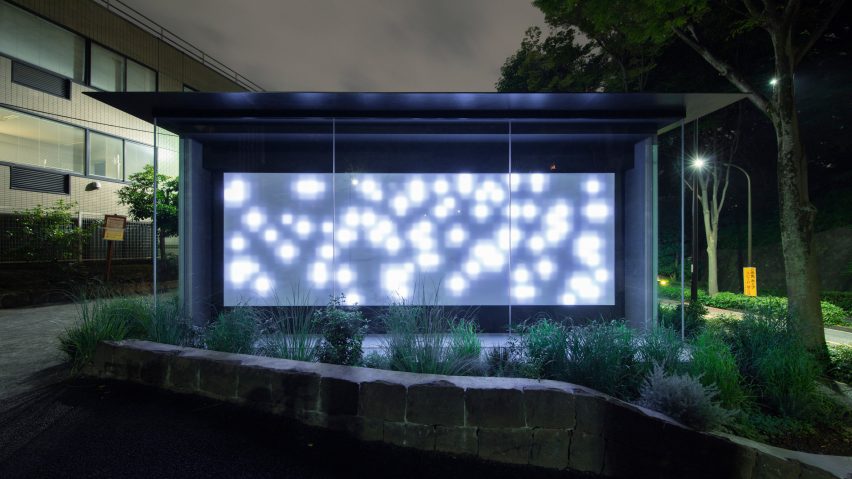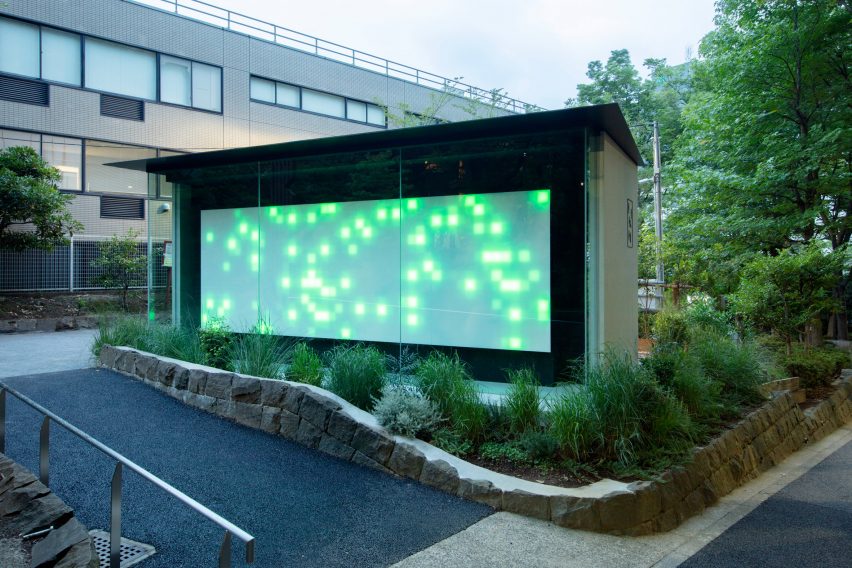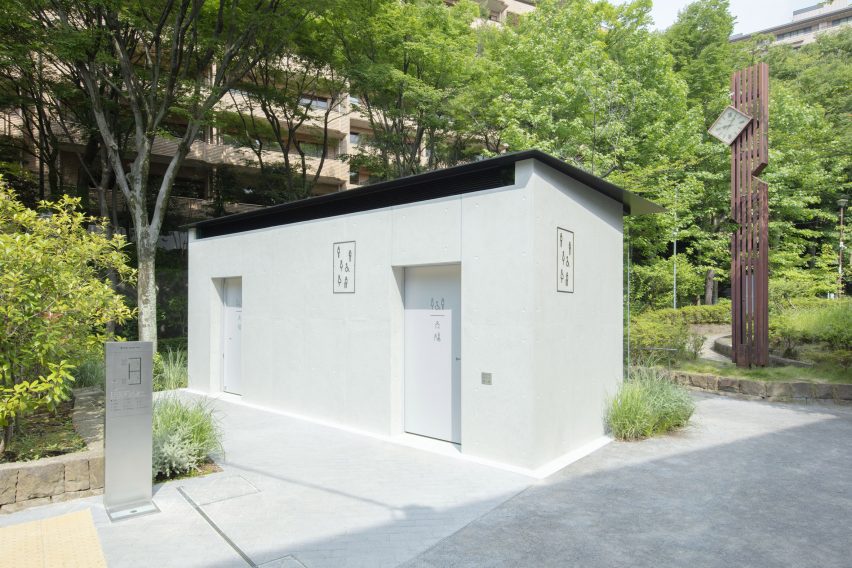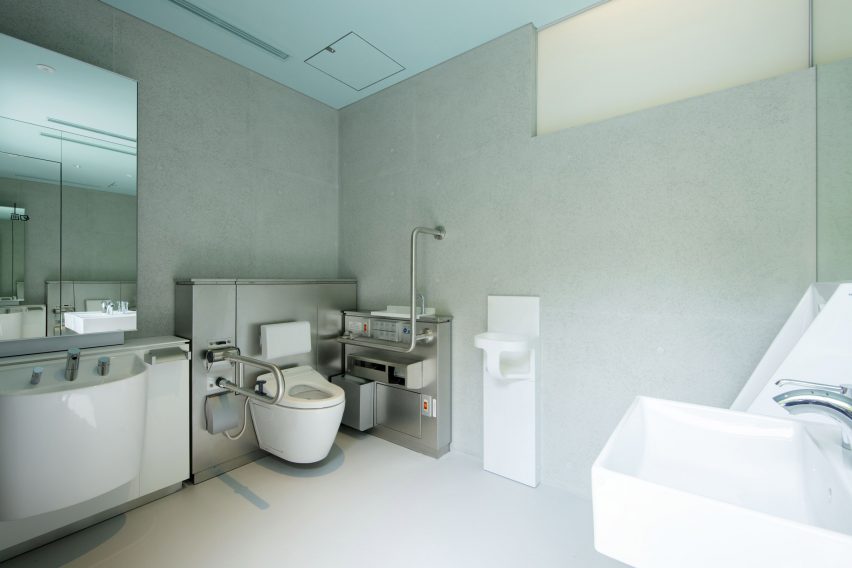
Tomohito Ushiro designs Tokyo toilet to be "a piece of public art"
Japanese graphic designer Tomohito Ushiro has completed the Hiroo East Park toilet in central Tokyo as the latest addition to the Tokyo Toilet project.
Built within the Hiroo East Park, the toilet features a large light panel that circles through 7.9 billion different light patterns, in a reference to the world's population at the point the project was conceived.

Created to replace a red brick block that was previously on the site, the concrete structure has a glazed rear wall that encloses the light panel.
Ushiro, who is the founder of agency White Design, hopes that the toilet will act as a piece of public art and draw attention to the wider Tokyo Toilet project, which will see 17 toilets designed by leading architects and designers built in central Toyko.
"The location in a park, surrounded by greenery in an area where many people live, means that it is also like a piece of public art that is part of people's daily lives, and is always posing questions," said Ushiro.
"I hope this toilet will become a monument that continuously makes people think about the project's significance."

The artwork uses green lights during the day and white lights at night to create a series of continuously changing patterns so that the building always appears different to passers-by.
"The toilet can be said to have 7.9 billion lighting patterns – the same number as the world's population – because they change continuously, from sunlight filtering through the trees during the day to wafting in moonlight or a firefly flying about at night," said Ushiro.
"People will never see the same pattern twice."

The concrete block itself contains two square unisex toilet cubicles that contain baby chairs and changing stations.
The Hiroo East Park toilet is one of 14 toilets that have been unveiled so far as part of the Tokyo Toilet project, which is run by the non-profit Nippon Foundation. Earlier this week, a toilet designed by industrial designer Marc Newsom was revealed, while previous versions were designed by Pritzker Prize-winning architects Shigeru Ban, Tadao Ando and Fumihiko Maki.
The photography is by Satoshi Nagare, courtesy of the Nippon Foundation.